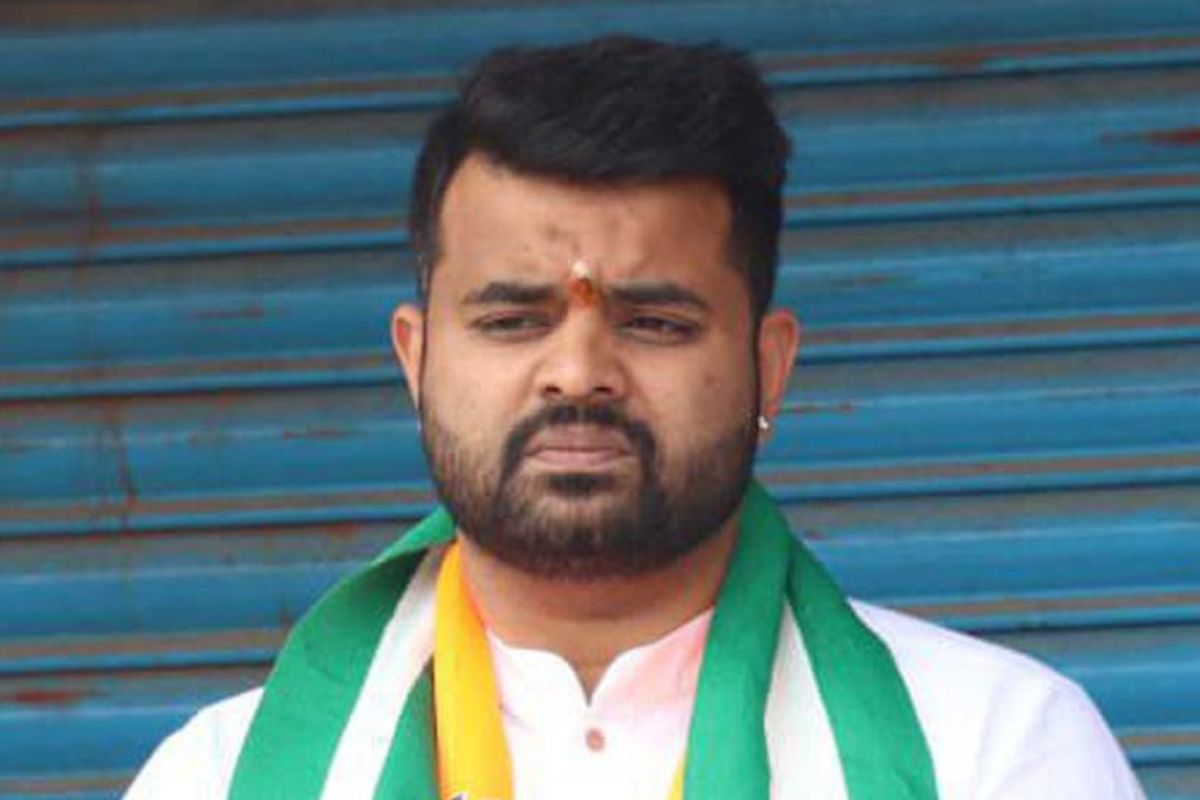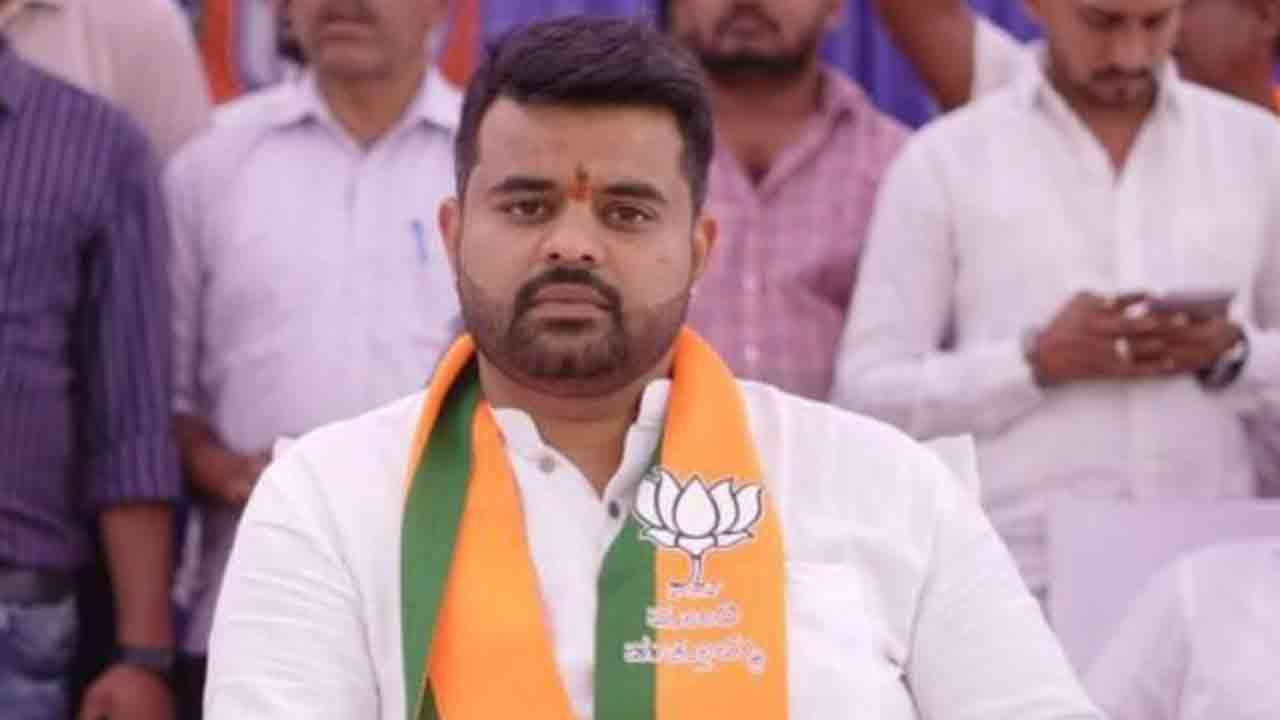Prajwal Revanna Porn: Debunking Myths, Understanding The Truth
In recent years, the name "Prajwal Revanna" has been associated with various online controversies, including allegations related to explicit content. However, it's essential to separate fact from fiction and understand the truth behind these claims. This article aims to provide a comprehensive overview of the topic, focusing on the individual's background, the controversies surrounding them, and the importance of responsible information consumption.
As we delve into this subject, it's crucial to approach it with a critical mindset and rely on credible sources. The spread of misinformation can lead to serious consequences, especially when it involves individuals' reputations. Therefore, we will explore the origins of these allegations, analyze their validity, and provide insights into the broader implications of such controversies.
By the end of this article, you will gain a clearer understanding of the situation and be equipped with the knowledge to make informed judgments. Let's begin by examining the background of Prajwal Revanna and setting the stage for a deeper discussion.
Read also:Bts Members Ages A Comprehensive Guide To The Bangtan Boys
Biography of Prajwal Revanna
Early Life and Career
Prajwal Revanna is a prominent figure in the entertainment industry, known for his contributions as an actor, producer, and entrepreneur. Born on January 1, 1990, in Mysore, India, Revanna hails from a family deeply rooted in the arts. His father, Revanna, is a well-known actor in Kannada cinema, which laid the foundation for Prajwal's entry into the world of films.
Revanna's early years were spent immersed in the culture of filmmaking. He pursued a degree in commerce before transitioning to the film industry, where he quickly made a name for himself. His debut in the entertainment world came through supporting roles, but his talent and dedication soon propelled him to stardom.
Biodata of Prajwal Revanna
Below is a summary of Prajwal Revanna's personal and professional details:
| Full Name | Prajwal Revanna |
|---|---|
| Date of Birth | January 1, 1990 |
| Place of Birth | Mysore, India |
| Profession | Actor, Producer, Entrepreneur |
| Language | Kannada, Hindi, English |
| Spouse | Unmarried |
Understanding the Controversy
Origins of the "Prajwal Revanna Porn" Allegations
The term "Prajwal Revanna porn" gained traction online after certain websites began circulating rumors linking the actor to explicit content. These claims were fueled by sensational headlines and clickbait articles designed to attract attention. However, upon closer examination, it becomes evident that these allegations lack credible evidence.
One of the primary reasons such rumors spread rapidly is the lack of digital literacy among some internet users. People often share content without verifying its authenticity, contributing to the proliferation of misinformation. In Prajwal Revanna's case, the allegations appear to be baseless and harmful, targeting his reputation unfairly.
Legal and Ethical Implications
Spreading false information about individuals, especially public figures, can have severe legal and ethical consequences. Under Indian law, defamation is a punishable offense, and those responsible for disseminating false allegations can face legal action. Moreover, such behavior undermines trust in digital media and harms the mental well-being of those affected.
Read also:Santos Tiktok Age Exploring The Rise Of A Global Sensation
It is crucial for media outlets and individuals to adhere to ethical standards when reporting on sensitive topics. Responsible journalism involves verifying facts, citing credible sources, and avoiding sensationalism. By doing so, we can create a more informed and respectful digital environment.
Impact on Personal and Professional Life
Psychological Effects on Individuals
False allegations, particularly those of a personal nature, can have a profound impact on an individual's mental health. The constant exposure to negative commentary and harassment can lead to anxiety, depression, and social withdrawal. Prajwal Revanna, like many public figures, has likely faced challenges in dealing with such rumors while maintaining his professional commitments.
It is essential for society to recognize the human side of celebrities and treat them with empathy and respect. By fostering a culture of understanding, we can help mitigate the adverse effects of online harassment and misinformation.
Professional Consequences
From a professional standpoint, false allegations can harm an individual's career prospects. Sponsors, collaborators, and audiences may distance themselves from a public figure due to unfounded rumors, resulting in financial losses and reputational damage. Prajwal Revanna's career, built on years of hard work and dedication, should not be overshadowed by baseless claims.
Role of Digital Media
Spread of Misinformation
Digital media platforms play a significant role in shaping public opinion. While they offer unprecedented opportunities for information sharing, they also contribute to the rapid spread of misinformation. The algorithms used by social media platforms prioritize engagement, often at the expense of accuracy and credibility.
To combat this issue, users must develop critical thinking skills and learn to identify trustworthy sources. Fact-checking websites and reputable news outlets can serve as valuable resources for verifying information before sharing it with others.
Responsible Content Creation
Content creators, including journalists, bloggers, and influencers, bear a responsibility to produce accurate and ethical content. By adhering to professional standards and prioritizing truth over sensationalism, they can help build trust with their audience and contribute to a healthier digital ecosystem.
Public Perception and Media Literacy
How Public Opinion is Shaped
Public perception is heavily influenced by the media. Sensational headlines and provocative content often capture attention, even if they lack substance or accuracy. As consumers of information, we must remain vigilant and question the validity of what we read and watch.
Media literacy involves understanding how media works, recognizing bias, and evaluating the credibility of sources. By developing these skills, individuals can make informed decisions and avoid falling prey to misinformation.
Building a Discerning Audience
Educating the public about the importance of media literacy is crucial in combating the spread of false information. Schools, community organizations, and online platforms can play a pivotal role in promoting critical thinking and responsible information consumption. By fostering a discerning audience, we can reduce the impact of misleading content on society.
Data and Statistics
Prevalence of Online Misinformation
According to a study by the Reuters Institute for the Study of Journalism, 59% of online users in India encounter misinformation regularly. The same report highlights that social media platforms are the primary source of such content, underscoring the need for improved content moderation and user education.
Another study by the Pew Research Center reveals that 64% of adults believe fake news has caused significant confusion about basic facts. These statistics underscore the urgency of addressing the issue of misinformation and its impact on individuals and society.
Steps to Combat Misinformation
- Encourage users to verify information before sharing.
- Support independent fact-checking organizations.
- Advocate for stronger content moderation policies on social media platforms.
- Promote digital literacy programs in schools and communities.
Legal Frameworks and Protections
Defamation Laws in India
In India, defamation is covered under Section 499 of the Indian Penal Code, which defines it as "injuring the reputation of any person." Individuals found guilty of defamation can face imprisonment for up to two years or a fine, or both. These legal protections are essential for safeguarding individuals' rights and reputations.
Additionally, the Information Technology Act, 2000, addresses cyber defamation and provides remedies for victims of online harassment. By leveraging these laws, individuals like Prajwal Revanna can seek justice and hold perpetrators accountable for spreading false information.
International Perspectives
Globally, countries have implemented various measures to combat misinformation and protect individuals' rights. For example, the European Union's Code of Practice on Disinformation encourages tech companies to take proactive steps to address false content. Similarly, the United States has seen increased scrutiny of social media platforms' role in spreading misinformation, leading to calls for regulatory reform.
Call to Action
What You Can Do
As responsible digital citizens, we all have a role to play in combating misinformation. Here are some actionable steps you can take:
- Verify information before sharing it with others.
- Support credible news sources and independent journalism.
- Report false content to platform moderators and authorities.
- Engage in discussions about media literacy and digital responsibility.
Conclusion
In conclusion, the allegations surrounding "Prajwal Revanna porn" highlight the dangers of misinformation and its impact on individuals' lives. By understanding the origins of these claims, examining their validity, and exploring the broader implications of such controversies, we can foster a more informed and respectful digital community.
We invite you to join the conversation by leaving your thoughts in the comments section below. Additionally, feel free to share this article with others who may benefit from its insights. Together, we can create a more responsible and ethical digital landscape for everyone.
Table of Contents
- Biography of Prajwal Revanna
- Early Life and Career
- Biodata of Prajwal Revanna
- Understanding the Controversy
- Origins of the "Prajwal Revanna Porn" Allegations
- Legal and Ethical Implications
- Impact on Personal and Professional Life
- Psychological Effects on Individuals
- Professional Consequences
- Role of Digital Media
- Spread of Misinformation
- Responsible Content Creation
- Public Perception and Media Literacy
- How Public Opinion is Shaped
- Building a Discerning Audience
- Data and Statistics
- Prevalence of Online Misinformation
- Steps to Combat Misinformation
- Legal Frameworks and Protections
- Defamation Laws in India
- International Perspectives
- Call to Action
- Conclusion


